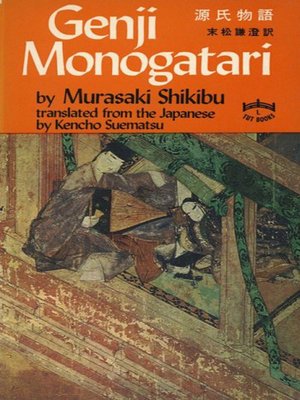
Sign up to save your library
With an OverDrive account, you can save your favorite libraries for at-a-glance information about availability. Find out more about OverDrive accounts.
Find this title in Libby, the library reading app by OverDrive.



Search for a digital library with this title
Title found at these libraries:
| Library Name | Distance |
|---|---|
| Loading... |
Genji Monogatari (The Tale of Genji) is the Japan's earliest novel and the most famous work in Japan's literary history. It remains the finest portrayal of court life in the classical Heian period, some ten centuries ago. The author, Murasaki Shikibu (Lady Murasaki) was a member of the celebrated Fujiwara clan, which virtually created the history and culture of the Heian age.
The novel has for its theme the many loves of the radiantly charming Prince Genji, son of the emperor and paragon of the ladies of the court. But its underlying motif is the fleeting nature of life in a transient world of beauty and grace, of love and enmity. It is an incredibly absorbing tale, distinguished by the author's amazing insight in her treatment of human personality and human events.
Its diversity of characters and its subtle inquiries into the meaning of life make it one of the most significant and memorable of books. Some have compared it with Proust's Remembrance of Things Past, and certainly there is validity in the comparison. It most decidedly deserves its place among the world's foremost literary classics. Genji Monogatari, an immensely long novel, is presented here in an abridged translation.
The novel has for its theme the many loves of the radiantly charming Prince Genji, son of the emperor and paragon of the ladies of the court. But its underlying motif is the fleeting nature of life in a transient world of beauty and grace, of love and enmity. It is an incredibly absorbing tale, distinguished by the author's amazing insight in her treatment of human personality and human events.
Its diversity of characters and its subtle inquiries into the meaning of life make it one of the most significant and memorable of books. Some have compared it with Proust's Remembrance of Things Past, and certainly there is validity in the comparison. It most decidedly deserves its place among the world's foremost literary classics. Genji Monogatari, an immensely long novel, is presented here in an abridged translation.







